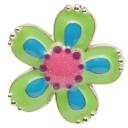Yahoo Answers is shutting down on May 4th, 2021 (Eastern Time) and the Yahoo Answers website is now in read-only mode. There will be no changes to other Yahoo properties or services, or your Yahoo account. You can find more information about the Yahoo Answers shutdown and how to download your data on this help page.
Trending News
Why do foster mothers call the mother/father of their foster-child..."birthmother/birthparents?
I am not understanding this...foster mothers calling the mother of their fostered child..."birthmother". The mother has not surrendered her parental rights nor has she been TPR'd. The foster mother/parents are just that...Foster. Their foster child still has his/her own legal mother/parents...why are they being called "birth" anything? From what I understand in fostercare, supposedly reunification with the mother/father is the primary goal, if feasible. Why would they be called "birthmother/father/parents"? Why do some foster mothers insist on calling the mother/father of the child they are fostering, "Birth"?? Until parental rights are surrendered, or TPR'd, or the adoption finalization... the natural mother/father is just that...the one and only legal mother/father of her/his child. I was reading at this place...
http://www.diaperswappers.com/forum/showthread.php...
As much as I disagree with the birth thingy stuff...still I am not understanding how a mother/father who still have parental rights to their child, can be called "birth". Anyone care to explain to me? I guess anyone who has a baby nowadays, even in marriage, can be called a "birth" something, would that be true?
ETA: Botz..Thank you for your most informative answer. I really did appreciate it. I too can be still be educated and thankfully there are people such as yourself, who have worked within the system, that can shed more light on this specific subject, without an air of condemnation and ridicule.
ETA: Thank you very much Redbook.."“Choosing emotionally-correct words is especially important in adoption transactions .... implying that no emotional or familial connection remains between members of the pre-existing family” (pp. 451-452).""
19 Answers
- julie jLv 61 decade agoFavorite Answer
Hi Gypsywinter,
Good question. I believe it's the same psychology that motivates social workers in adoption agencies, adoption attorneys & adoption websites to refer to expectant mothers as "birth mothers." This mindset encourages everyone early on, including the parents themselves, to get used to the idea that the actual parents are not going to be the ones ultimately raising their own children.
People who use the terms "birth mothers," "birth fathers" or "birth parents" usually have an agenda that includes eventually separating the children from their parents. They even teach the children to start calling their parents those words instead of simply mom & dad. I agree with you that until, and unless, TPR or relinquishment occurs, the parents are still the parents of the children & should be referred to as such. Other parties are the ones who need prefixes in front of the word parent if clarification is needed (foster parent, PAP, etc.)
julie j
reunited adult adoptee
Source(s): ETA for Anime - "Mothers," "fathers" or "parents" will suffice. Those words already imply that you gave birth to the child unless otherwise specified. Most people, myself included, who give birth to their children & raise them do not refer to themselves as "birth parents." That term's generally reserved for after a relinquishment or TPR. Even then, it's not the best choice of terms. - ~Compétences~Lv 61 decade ago
Not all foster moms do that. Out of the 4 that I had- 3 horrible experiences by the way- none ever called my mom my " birth mom" even though for a time we were up for adoption- mistake because the judge hadn't ordered that to happen.
When a child is placed in foster care....the child's custody is legally to the that state, not their parents. It's usually for a reason that the child is removed: abuse, neglect, loss of job/income,etc. In some cases its not the parents fault at all except that they let their child run over them, letting them have their way,hanging out with the wrong crowd, coming in at odd hours at night,etc. With the exception of abuse- sexual or physical- they do try to reunite the families although sometimes its not possible if the parent or the child does not want to be reunited. One of my sister's friends "aged" out of the system. Her mother didn't want her anymore, she would rather do drugs and get high then have her daughter- which made her daughter very depressed.
None of the foster parents that we had made us call them " mom" or "dad" but the one that treated us the best, we did grow close to and they were role models for me and like parents to me, they still are. My former foster mom was visited me in the hospital after having a premature baby, she's been there for me thick and thin, even after leaving her care. I respect her and love her and she has said that I will always be a daughter to her. My mother don't mind, she don't feel disrespected. She likes her and they have talked,etc. The only reason my sister and I ended up in the system was after my father died, my mom got depressed, lost her job and her apartment. She voluntarily gave us up till she could bet back on her feet. Only after doing, they dragged it on for nearly 3 years 2 1/2 years we were with that 2nd family the ones I still talk to today. Then 2nd time was because we moved around a lot, didn't have stable environment even though she still had a job,etc. 2nd time we weren't in there as long less then a year.
I have heard the social workers use the term but the foster parents I knew- I knew other ones not just the ones I lived with, never used the term.
- cricketladyLv 71 decade ago
We always used the terms mom and dad to refer to their parents; although if they were in state custody the state was technically their parents. The children called us as mom and dad---although we told them our name[which is easy to pronounce]. I got the feeling that they had spent a lot of time with other parent figures and this was just 2nd nature to the,.Their parents were not offended as I thought they might be. They. the parents. would also refer to us as mom and dad, grandma, aunt. It's just a matter of who's speaking.
- Shelly17Lv 51 decade ago
As the term 'birthmother' means a former mother, and the editor of Child Welfare magazine in 1979 agreed with a submitting writer, social worker and baby broker Marietta Spencer, that this should be the terminology adopted by the child welfare system, then you can see that this is a way to define these parents as being former parents.
It also renders invisible the large number of adoptive parents whose abuse of their child ends up with them being apprehended and put into foster care. So, adoptive parents continue to wear haloes and natural parents continue to be vilified. I suggest you bring this fact to the attention of your instructor, and tell them that the purpose of "birth-terms" are to carry out this agenda:
“Choosing emotionally-correct words is especially important in adoption transactions .... implying that no emotional or familial connection remains between members of the pre-existing family” (pp. 451-452).
So, no emotional or familial connection remains: that is the purpose of the term 'birthparents.'
Source(s): Spencer, M. (1979). “The Terminology of Adoption.” Child Welfare, Vol. 58, No. 7, pp. 451-459. - Anonymous1 decade ago
You birthed a child, and you are the mother of that child.
Birth + mother = birth mother.
It's rocket science.
Source(s): In 2 years you will be b!!tching about how discriminatory the term "natural mother" is. - SamLv 51 decade ago
We only takes teens, So this is my point of view from that.
I refer to the kids bio parent by their first name or whatever the kids call them. If a kid has been in the system any length of time they tend to say bio or birth mom/dad when talking about them. It's just a matter of keeping all the parties in the discussion straight.
The judge calls them birth/bio parents, as do the GAL, CW & therapist. It's a legal term just like foster parent & adoptive parent.
Since I have 3 of my own kids here that call me mom & hubby dad it could get massively confusing to all the kids as to who was talking about who.
Then on occasion you have kids that want to or tend to call the foster parents Mom & Dad. Some kids are in care for years & while their parents rights haven't been terminated the kids no longer think of them as their parents.
- BOTZLv 51 decade ago
I can't tell you why... *sigh*
I can tell you, though, that I (a soon-to-be foster carer, and an adoptee) don't use it and never would.
One thing I can suggest is this: My DH and I recently completed the pre-service classes required to become licensed and the trainer of said classes used 'birth' terms throughout the series... starting in class #1. I sat, quietly, and listened to that language being used through about 2.5 classes and then spoke to the instructor privately during the break of class #3. I was polite and direct... and my thoughts on the subject fell on utterly deaf ears. *sigh* By that time, most of the other prospective foster parents in the class had begun to use the 'birth' terms as well, while most had started out using "mother" and "father" and "grandparents", etc. to (accurately) describe the child/ren's own family members.
I have also had ample experience in family/juvenile court (as mentioned by "The Brain") and I can tell you that, at least in my state, 'birth' terms are used ubiquitously there, too. I have stood (in my 'past life' as a practicing social worker for DCFS) in 6 or 7 judges' courtrooms on numerous occasions and I can think of only one, specifically, who never used 'birth' terms.
What I'm getting at is that, I believe, without prior experience in foster care and/or adoption -- or any 'real life' link to them -- the use of the terms don't necessarily ORIGINATE with the foster parents. I still don't agree with them. I still dislike them tremendously. I did have the opportunity to educate many of my pre-service classmates, many of whom were sensitive to the language and understood the 'deeper' connotations from a different perspective than their own. I'm just saying that it's possible -- as was apparent in my training -- that the foster parents were not necessarily using the terms out of a dark, sinister intention to 'lay claim' to the children or disrespect the parents.
What I'm hoping is that we can continue to educate, educate, educate... and educate some more. I thought exactly as you, and some of your responders, do on this subject before I took those foster care training classes. I still find 'birth' terms disgusting, disrespectful and completely unacceptable. My change in perspective is that the choice to use these terms may not stem -- in ALL cases -- from where I thought it did.
There were, I will confirm, some prospective foster carers in my cohort who had the air of entitlement and disdain for the parents right from the beginning. Them I do not respect and I have deep sympathy for any future foster children in their care. I spoke with them, too, and explained my background (as an adoptee and social worker) and tried to impress upon them why the 'birth' terms are disrespectful and ugly. I don't know what, if any, effect those discussions had. I can only hope that they at least remember... and maybe, someday, understand.
Take care!
Source(s): REunited adult adoptee, social worker, and PFAP. - RosieLv 61 decade ago
It's not the foster mothers who do the naming. It's DFS that does. Please lay off foster mothers.
"Birth Mother" used to be a neutral term. IT does not mean a foster mom is a very poor foster parent. Good grief!
Babies come into foster care under dire circumstances. Not benign ones. New foster parents need education, not censure. They don't start out knowing how things work. They learn.
Try reading this thread to see how foster parents try to support the birth mothers.
http://www.diaperswappers.com/forum/showthread.php...
If all you have is a hammer, then everything starts to look like a nail.
- ?Lv 71 decade ago
Unfortunately people in general not just foster carers assume it's an acceptable term to use for parents not raising their children. I regularly hear social workers use the term and always pull them up on it as a parent is a parent is a parent and just because their child/children is/are in care doesn't make them a birth parent. Then again I find it offensive to call a natural parent a birth parent when their child is adopted. A mother doesn't just give birth and fathers/extended family doesn't give birth period so it is a stupid term to use. I only use terms when I absolutely have to to clarify but one thing I never, ever do is call a parent whose child is in foster care a birth parent I refer to them as the parent. I do know parents in this situation so they appreciate my views on it.
- Anonymous1 decade ago
Well, it's a completely unambiguous term. There's no question of who they are referring to. Sometimes that's important.
It's a shame it's come to have the connotation of being an insult because of the people who tend to use it, but it's unsurprising. Give it five years, and whatever the current politically correct term is will be considered an insult and there will be a new one which you are considered rude not to use. Ten years after that it'll change again.
Source(s): Anyone else remember when the polite word for people of a certain race was "*****"? Then it was "black". Now it's "African American". I think we're about due a new one. Edit: I think the fact that particular word is starred out (it ended in an "o", by the way, nothing crude) says it all. From polite term to deep profanity in 30 years. - 1 decade ago
To me that would be like a step parent calling your other parent the "birth parent". Kind of ridiculous in my opinion.
Source(s): Surprisingly self actualized adult adoptee





